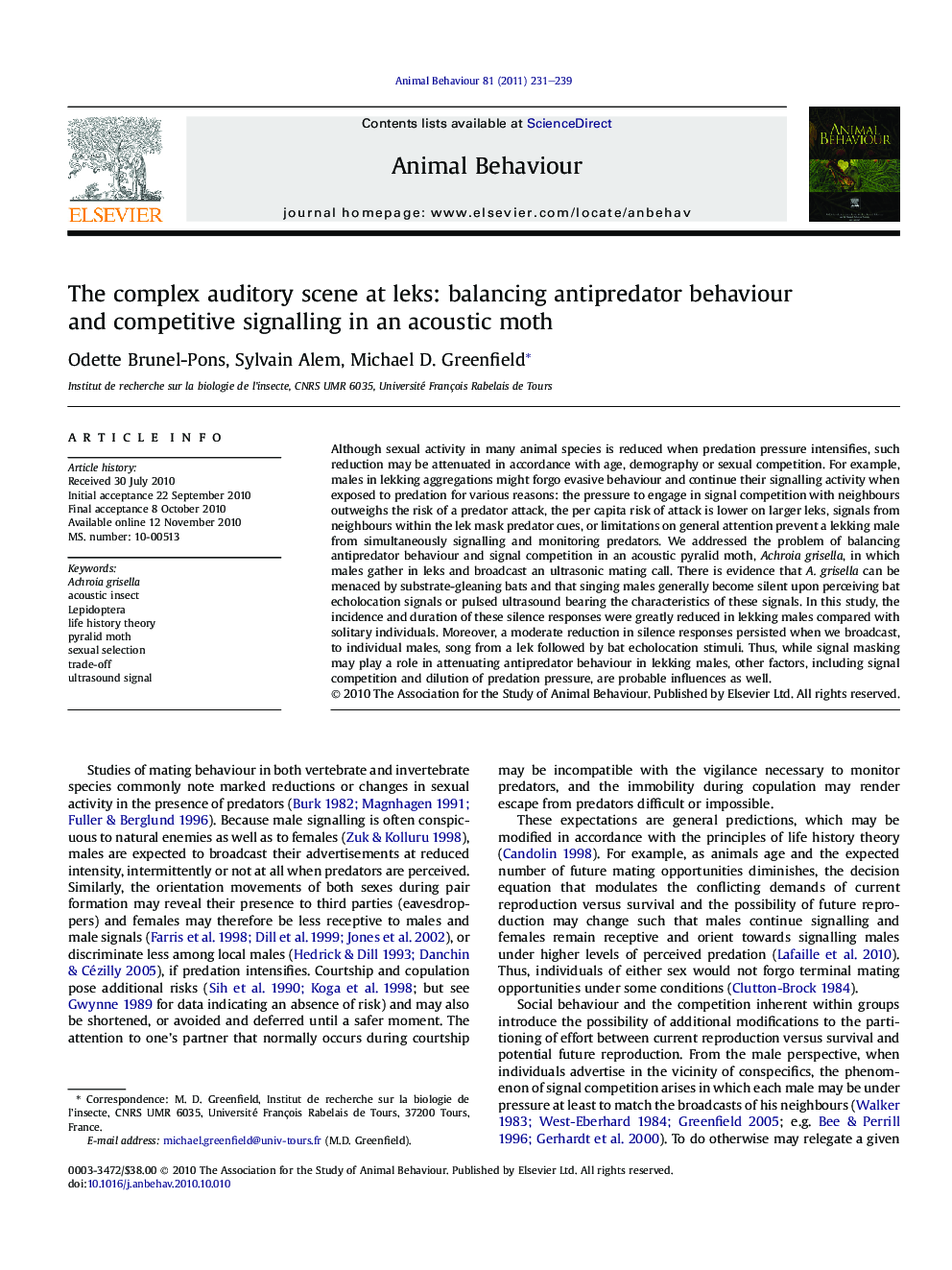| Article ID | Journal | Published Year | Pages | File Type |
|---|---|---|---|---|
| 10971051 | Animal Behaviour | 2011 | 9 Pages |
Abstract
Although sexual activity in many animal species is reduced when predation pressure intensifies, such reduction may be attenuated in accordance with age, demography or sexual competition. For example, males in lekking aggregations might forgo evasive behaviour and continue their signalling activity when exposed to predation for various reasons: the pressure to engage in signal competition with neighbours outweighs the risk of a predator attack, the per capita risk of attack is lower on larger leks, signals from neighbours within the lek mask predator cues, or limitations on general attention prevent a lekking male from simultaneously signalling and monitoring predators. We addressed the problem of balancing antipredator behaviour and signal competition in an acoustic pyralid moth, Achroia grisella, in which males gather in leks and broadcast an ultrasonic mating call. There is evidence that A. grisella can be menaced by substrate-gleaning bats and that singing males generally become silent upon perceiving bat echolocation signals or pulsed ultrasound bearing the characteristics of these signals. In this study, the incidence and duration of these silence responses were greatly reduced in lekking males compared with solitary individuals. Moreover, a moderate reduction in silence responses persisted when we broadcast, to individual males, song from a lek followed by bat echolocation stimuli. Thus, while signal masking may play a role in attenuating antipredator behaviour in lekking males, other factors, including signal competition and dilution of predation pressure, are probable influences as well.
Related Topics
Life Sciences
Agricultural and Biological Sciences
Animal Science and Zoology
Authors
Odette Brunel-Pons, Sylvain Alem, Michael D. Greenfield,
